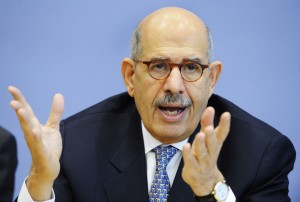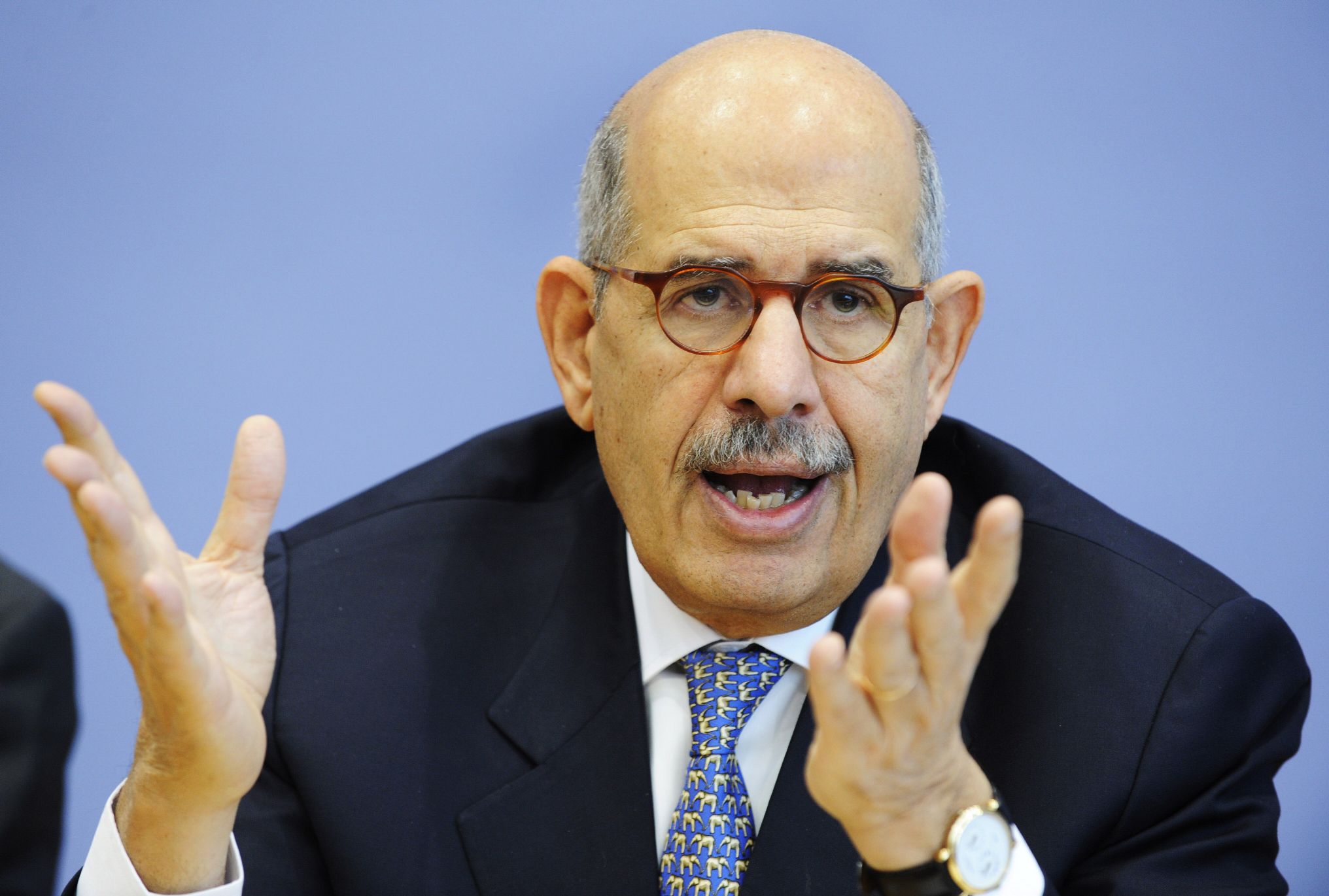
(AFP Photo)
Opposition leader Mohamed ElBaradei unveiled a new initiative called “Egypt of the Future” which will act as a whitepaper for the National Salvation Front.
ElBaradei proposed the report, which was drafted by a group of youth working in cooperation with the Al-Dostour Party leader, to the opposition coalition, which is currently studying it.
“The youth who worked on this project proposed the report to ElBaradei among others, including the government,” said his official spokesperson Rana Azab.
NSF committees are now studying the different aspects of the report with a view of voting on it and amending parts that fail to garner consensus, according to Al-Dostour’s official website.
“Two years after the 25 January Revolution we are still far from achieving its goals. On the contrary, the nation is now experiencing political polarisation and economic collapse,” ElBaradei wrote in the paper’s introduction.
The Nobel laureate added that the project introduces a holistic vision of Egypt’s future and includes policy proposals on the economic and social fronts.
The report, over 120 pages long, is divided into nine “development-based” sections, the first of which is the need for fighting poverty and establishing a social security net based on introducing a balanced tax system with progressive brackets in conjunction with a permanent welfare system.
It is unreasonable, the report argues, that taxes are collected from the salaries of lower-ranking civil servants and private employees while the state receives nothing from the profits of big capital.
Progressive taxes, universal healthcare, and a five-year program fighting illiteracy are at the core of the first development section. In order to achieve a functioning universal healthcare system the state needs to properly educate and train a sufficient amount of doctors and nurses.
Subsidies need to be completely revised and only provided to those who need them which will save the state between three and four billion Egyptian pounds annually, the report goes on.
The report also recommends controlling prices and providing stability to the market through encouraging agriculture and manufacturing with a view towards providing local alternatives and reducing imports.
In order to achieve this, the state needs to assist the agriculture sector through investing in agricultural projects with neighbouring countries as well as controlling prices within the construction sector.
Urban development of urban slums, villages and underprivileged areas is also one of the main themes of the report which recommends fighting monopolies within the construction industry as a main first step towards achieving that goal. The ownership of land on which slums and unregistered homes are built should transfer from the state to the inhabitants who should then be involved in the process of developing these areas.
Other areas the report focuses on are fair wages for all citizens through the introduction of a minimum wage system as well as allowing workers to improve their skills and qualifications, institutional reform within government agencies and quick evolution towards decentralisation, implementing the rule of law and finally a complete overhaul of the education system.
In addition to recommendations and proposed policies, the report also includes several detailed studies and statistics on agricultural reform, education, manufacturing, healthcare, tourism, art, transport, energy, housing, media, communications, technology, environmental affairs, civil society, and economics.



